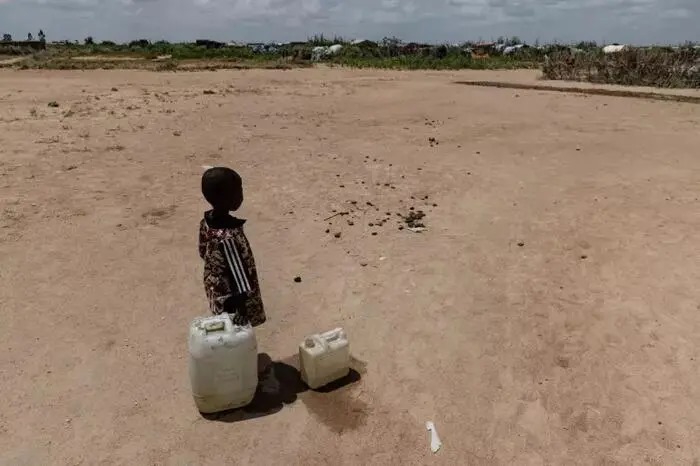Fighting around the Golo water reservoir jeopardizes main water source for over 130,000 children

UNICEF
Escalating violence in and around El Fasher, North Darfur, has jeopardized the main water source for over 130,000 children, according to UNICEF.
On May 26, the RSF temporarily captured the Golo water reservoir, a critical resource for an estimated 270,000 people, but the army and allied groups managed to retake it the next day.
In a statement related to this incident, UNICEF says the ongoing fighting over El Fasher poses a grave threat to the health and well-being of children and families already displaced by the war.
“The deteriorating security situation and the intense conflict have led to a significantly growing displacement of the civilian population,” said Adele Khodr, UNICEF Regional Director for the Middle East and North Africa.
“The scarcity of safe drinking water and healthcare poses a particularly grave threat to the displaced, sick, injured, and children,” Khodor underscored.
She warned that damage or destruction of the reservoir would cut off families and children from safe water, increasing the risk of waterborne diseases in a region already ravaged by conflict. Children suffering from acute malnutrition and weakened immune systems would be particularly vulnerable.
UNICEF has called on all parties to the conflict to respect international humanitarian law and cease attacks on civilian infrastructure, including water systems, hospitals, health centres, and schools. The organization also stressed the need for utility staff to have unrestricted access to water sources, including the Golo reservoir, to ensure a sustained water supply.
“Water is essential for survival and cannot be denied,” Khodr emphasized. The situation in El Fasher underscores the devastating impact of conflict on children and the urgent need for all parties to prioritize their protection and well-being.
“The deteriorating security situation and the intense conflict in and around El Fasher, Darfur, have led to a significantly growing displacement of the civilian population from the area. The scarcity of safe drinking water and healthcare poses a particularly grave threat to the displaced, sick, injured, and children.
“Basic services, such as water and healthcare, are at risk of being disrupted. The conflict over the Golo water reservoir – which serves as one of the primary water sources for an estimated 270,000 people in the city and nearby communities – is putting it at high risk of being damaged or destroyed. This will lead to families and children being cut off from safe and adequate water and increase the risk of waterborne diseases in a region already torn by war. Children suffering from acute malnutrition and weakened immune systems will be particularly in danger.
“UNICEF calls on all parties to abide by their obligations under international humanitarian law and end all attacks on or close to critical civilian infrastructure, including water systems and facilities, hospitals, health centres and schools. To ensure sustained water supply services, utility staff must also have unrestricted and safe access to water sources including the Golo water reservoir.
“Water is essential for survival and cannot be denied.”



